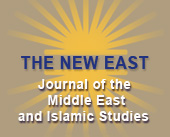The Hamah Revolt of 1982 in the Discourse of the
Muslim Brethren in Syria
Liad Porat
The Hamah revolt of 1982 was a pivotal event in the collective psyche of the Muslim Brethren in Syria. The brutal suppression of the revolt crushed the movement's military power and removed for the decades to come its option of violent revolution to topple the regime. Nonetheless, the revolt and its aftermath remained ingrained in the historical consciousness of the Syrian Brethren.
These events became a "province of memory," which was cultivated by a cultural, textual, visual, and even physical memorial enterprise, and from which the movement drew moral support for the righteousness of its way. In the Brethren's perspective, the Hamah episode was remembered not only as a tragic disaster, but also as a heroic feat that should become part of the legacy of the Syrian nation.
For the Brethren, the events at Hamah became a living symbol of the Islamic struggle in Syria. The events gained a high status in the movement's collective memory, both due to the sanctity of the city itself, but equally through a systematic nurturing of a victorious narrative embedded in the story of the revolt. This narrative brought to the fore the myth of the individual sacrificing his life for an ideal, and that of the group that maintains its faith and unity, despite its grievous inferiority vis-?-vis the regime and its many casualties.
The paper focuses on the way the events in Hamah are reflected in the discourse of the Syrian Brethren and examines how they were enlisted to advance the movement's ongoing struggle against the regime.

